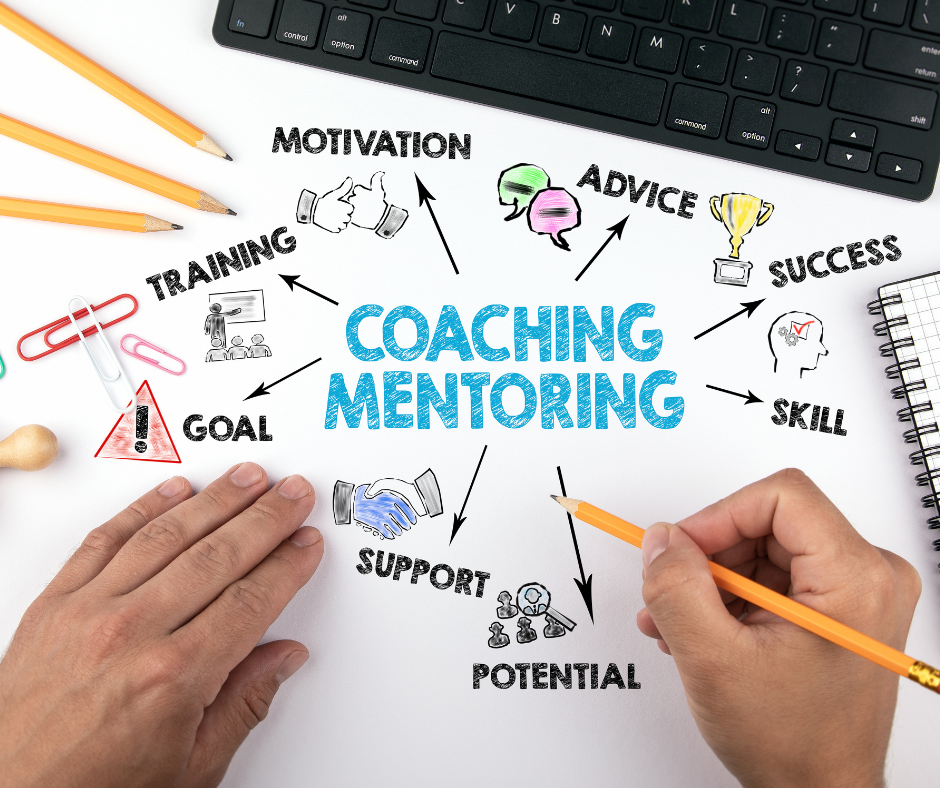
Poker is a game that combines skill, strategy, and psychology. While some players have a natural talent for the game, even the best can benefit from guidance and coaching. Finding a poker coach can be a game-changer, helping you improve your skills, develop new strategies, and avoid common pitfalls. In this article, we explore the benefits of poker coaching, how to find a coach, and ways to maximize your learning experience.
The rise of online poker and the growth of the professional poker scene have made coaching more accessible and valuable than ever before. Players looking to elevate their game now have a wealth of resources and experienced coaches to choose from, but navigating this landscape requires some insight and guidance.
1. The Benefits of Poker Coaching
Poker coaching offers numerous advantages for players of all skill levels. Whether you’re a beginner looking to learn the basics or an experienced player seeking to refine your strategies, a coach can provide valuable insights and personalized feedback. The benefits of poker coaching include improved skills, enhanced strategic thinking, and increased confidence.
Personalized Feedback
One of the most significant benefits of poker coaching is personalized feedback. A coach can analyze your gameplay, identify areas for improvement, and provide tailored advice based on your strengths and weaknesses. This personalized feedback helps you address specific issues and develop a more effective playing style, which can lead to better results at the table.
Personalized feedback is particularly useful for identifying and correcting leaks in your game, which are areas where you’re losing money unnecessarily. A coach’s insights can help you understand where you’re going wrong and how to adjust your strategy accordingly.
Strategic Improvement
Poker coaching helps you improve your strategic thinking and decision-making skills. A coach can teach you advanced strategies, such as bluffing, value betting, and hand reading, which can give you an edge over your opponents. By working with a coach, you can develop a deeper understanding of the game and learn how to adapt your strategies to different situations, enhancing your overall gameplay.
Strategic improvement also involves learning how to exploit the weaknesses of your opponents. A coach can teach you how to read your opponents’ tendencies and develop counter-strategies, which can significantly enhance your edge at the table.

Increased Confidence
Working with a poker coach can boost your confidence, as you’ll have a better understanding of the game and feel more prepared for various scenarios. Increased confidence can lead to better performance, as you’ll be more comfortable making decisions and less likely to second-guess yourself. This confidence can also help you handle losses and setbacks more effectively, improving your resilience and mental toughness.
Confidence is crucial in poker, as it affects your ability to make rational decisions and stay composed under pressure. A coach can help you develop a confident mindset, which enhances your gameplay and overall enjoyment of the game.
Avoiding Common Mistakes
Poker coaching helps you identify and correct common mistakes, such as playing too many hands, overvaluing certain hands, or misreading opponents. By learning from a coach’s experience and expertise, you can avoid these pitfalls and develop a more disciplined and effective playing style, which can lead to greater success at the table.
Avoiding common mistakes also involves developing good habits and routines, such as proper bankroll management and disciplined table selection. A coach can guide you in developing these habits, which are crucial for long-term success in poker.

Enhanced Learning Experience
A poker coach can provide a structured learning experience, helping you focus on specific areas of improvement and track your progress over time. This structured approach enhances your learning and helps you stay motivated, as you’ll have clear goals and a plan for achieving them. Additionally, a coach can provide resources and materials, such as hand histories, strategy guides, and practice exercises, to enhance your learning and reinforce key concepts.
A structured learning experience also involves regular review and reflection, which helps you internalize what you’ve learned and apply it to future situations. A coach can guide you in reviewing your gameplay and extracting valuable lessons, which enhances your long-term development.
2. How to Find a Poker Coach
Finding a poker coach can be challenging, as there are many options available, and the quality of coaching varies. To find the right coach for your needs, consider factors such as experience, coaching style, and cost.
Evaluating Experience and Expertise
When looking for a poker coach, evaluate their experience and expertise. Look for coaches with a proven track record of success, both as players and coaches. Experienced coaches have a deep understanding of the game and can provide valuable insights and advice. Additionally, consider the coach’s expertise in the specific type of poker you want to improve in, such as Texas Hold’em, Omaha, or tournament play.
Experience and expertise also involve the coach’s familiarity with different stakes and formats. For example, if you’re focused on micro-stakes cash games, look for a coach who has successfully played and coached at that level, as their insights will be more relevant to your situation.
Considering Coaching Style
Different coaches have different coaching styles, so it’s important to find one that suits your learning preferences. Some coaches may focus on technical aspects, such as hand ranges and probabilities, while others may emphasize psychological factors, such as mindset and tilt control. Consider what aspects of your game you want to improve and look for a coach whose style aligns with your needs.
Coaching style also involves the format and structure of coaching sessions. Some coaches prefer one-on-one sessions, while others may offer group coaching or online courses. Consider what format works best for your learning preferences and schedule, and choose a coach who offers the type of coaching you prefer.
Assessing Cost and Value
Poker coaching can vary in cost, so it’s important to consider your budget and assess the value you’ll receive. While more expensive coaches may offer higher quality or more personalized coaching, there are also affordable options available, such as group coaching or online courses. Consider what you’re willing to spend and weigh the potential benefits of coaching against the cost to find the best value.
Cost and value also involve the coach’s track record and reputation. Look for coaches who have a proven history of helping players improve and achieve their goals, as this indicates that their coaching is effective and worth the investment.
Reading Reviews and Testimonials
Reading reviews and testimonials from other players can help you evaluate potential coaches and find one that’s right for you. Look for feedback on the coach’s effectiveness, communication, and overall quality. Positive reviews and testimonials can provide confidence in your choice, while negative feedback may highlight potential issues to consider.
When reading reviews and testimonials, consider the context and relevance to your situation. For example, a coach who is highly recommended for tournament play may not be as effective for cash game players. Look for feedback from players who share your goals and preferences, as this will give you a better idea of what to expect from the coaching.
Exploring Coaching Platforms and Communities
There are many platforms and communities dedicated to poker coaching, where you can find coaches, connect with other players, and access resources. These platforms often provide ratings and reviews for coaches, making it easier to find a reputable and effective coach. Additionally, joining a coaching community can provide opportunities for group coaching, discussions, and networking, enhancing your learning experience.
Coaching platforms and communities also offer a variety of coaching formats and options, such as live webinars, recorded lessons, and interactive forums. Explore different platforms to find one that suits your needs and preferences, and consider joining multiple communities to access a wide range of coaching and learning opportunities.

3. Maximizing Your Coaching Experience
Once you’ve found a poker coach, it’s important to maximize your coaching experience to achieve the best results. This involves setting goals, preparing for sessions, and applying what you learn.
Setting Clear Goals
Setting clear goals for your coaching experience helps you focus on specific areas of improvement and track your progress. Work with your coach to set achievable and measurable goals, such as improving your win rate, learning a new strategy, or mastering a particular type of poker. Having clear goals provides direction for your coaching sessions and helps you stay motivated and focused on your learning.
Clear goals also involve setting realistic expectations and timelines for your improvement. Work with your coach to develop a realistic plan for achieving your goals and adjust your expectations based on your progress and feedback.
Preparing for Sessions
Preparing for your coaching sessions helps you make the most of your time with your coach. Review your recent gameplay, identify areas where you struggled, and come up with questions or topics to discuss. Preparing for sessions ensures that you’re focused and ready to learn, and it helps your coach provide more effective feedback and advice.
Preparing for sessions also involves reviewing any materials or assignments provided by your coach, such as hand histories, strategy guides, or practice exercises. This preparation enhances your understanding and allows you to make the most of your coaching time.
Being Open to Feedback
Being open to feedback is crucial for improving your poker skills. Listen to your coach’s advice and be willing to make changes to your playing style or strategies. It’s natural to feel defensive or resistant to feedback, but being open to constructive criticism helps you learn and grow as a player. Additionally, communicate with your coach if you have questions or concerns, as this helps ensure that the coaching is effective and tailored to your needs.
Being open to feedback also involves being honest about your challenges and weaknesses. Sharing your struggles with your coach allows them to provide more targeted and effective feedback, which enhances your learning and improvement.
Practicing and Applying What You Learn
Practicing and applying what you learn from your coach is essential for improving your game. Take the strategies and concepts you learn in your coaching sessions and apply them to your gameplay, whether in practice games, online play, or live tournaments. Practicing helps reinforce what you learn and allows you to test and refine your strategies in real-game situations.
Practicing and applying what you learn also involves regular review and reflection. After each session or game, review your performance and identify areas for further improvement. Discuss your progress with your coach and adjust your strategies and goals accordingly.
Reviewing Your Progress
Regularly reviewing your progress helps you evaluate the effectiveness of your coaching and identify areas for further improvement. Track your results, analyze your gameplay, and discuss your progress with your coach. Reviewing your progress helps you stay motivated, celebrate your successes, and address any challenges or issues that arise.
Reviewing your progress also involves setting new goals and challenges as you improve. Work with your coach to develop new goals and strategies based on your progress and feedback, and continue refining your game over time.

4. Exploring Different Coaching Formats
Poker coaching comes in various formats, each with its own advantages and disadvantages. Understanding the different formats can help you choose the best option for your needs.
One-on-One Coaching
One-on-one coaching offers personalized attention and feedback, as the coach focuses solely on your needs and gameplay. This format is ideal for players who want individualized coaching and are willing to invest in more intensive and tailored sessions. One-on-one coaching can be conducted in person or online, allowing for flexibility and convenience.
One-on-one coaching also allows for more interactive and dynamic learning, as the coach can respond to your specific questions and challenges in real-time. This format is particularly useful for addressing specific leaks or issues in your game.
Group Coaching
Group coaching involves learning with a group of players, often through online webinars, classes, or study groups. This format offers a more affordable option for coaching and provides opportunities to learn from other players’ experiences and questions. Group coaching may cover general topics or focus on specific areas of poker, such as tournament play or hand reading.
Group coaching also provides opportunities for networking and collaboration, as you can connect with other players and share insights and strategies. This format is particularly useful for developing a broader understanding of the game and learning from different perspectives.
Online Courses
Online courses provide a self-paced and structured learning experience, often through video lessons, quizzes, and exercises. This format is ideal for players who want to learn at their own pace or focus on specific topics. Online courses offer flexibility and affordability, but they may lack the personalized feedback and interaction of other coaching formats.
Online courses also provide opportunities for review and repetition, as you can revisit lessons and practice exercises at your own pace. This format is particularly useful for mastering specific concepts or strategies over time.
Poker Training Sites
Poker training sites offer a range of resources, including video lessons, hand histories, forums, and coaching options. These sites provide a comprehensive learning platform for poker players and often include a mix of coaching formats, such as one-on-one coaching, group coaching, and online courses. Poker training sites offer flexibility and a wealth of resources, but they may require a subscription or membership fee.
Poker training sites also provide opportunities for community engagement and support, as you can connect with other players and coaches to share insights and feedback. This format is particularly useful for developing a well-rounded understanding of the game and staying engaged with the poker community.
Poker coaching is a valuable tool for improving your game, whether you’re a beginner or an experienced player. By finding a reputable coach, setting clear goals, and maximizing your coaching experience, you can enhance your skills, develop new strategies, and achieve better results at the table. With the right coach and a commitment to learning, you can elevate your poker game and enjoy greater success and enjoyment in this exciting and challenging game.
Additionally, exploring different coaching formats and engaging with the poker community can enhance your learning experience and provide valuable insights and support. Through coaching, practice, and dedication, you can continue to grow and improve as a poker player, achieving your goals and reaching new heights in the game.
Start a live chat now to join one of our clubs available across 4 apps or ask us any questions. Message @bluffingmonkeys24_7 on Telegram or visit BluffingMonkeys.com & start a live chat.
